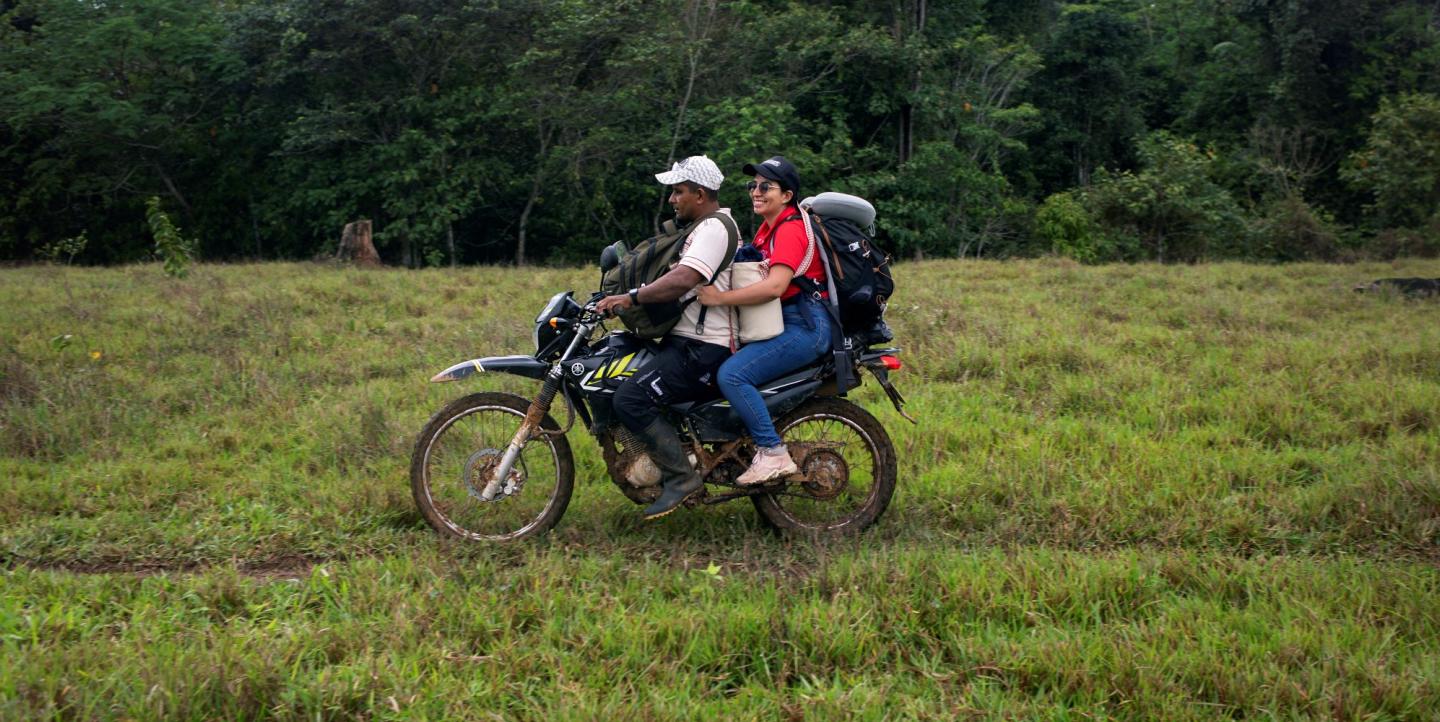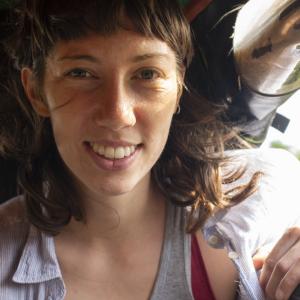Nuevo Colombia doesn’t get a lot of visitors. Those arriving in the optimistically-named outpost on the outskirts of the Colombian Amazon are greeted by a tattered banner advertising the presence of armed rebels in the area, and a cheerful mural with the words “dreams of peace.”
On the afternoon of May 25, 2023, a group of journalists from the independent media outlet, El Cuarto Mosquetero (ECM), pulled up to the village in a motorized canoe loaded with donations for the embattled community where they would be hosting a workshop for a local reporters’ collective called Voces del Guayabero.
Since 2020, Lina Álvarez, founding member and director of ECM, has collaborated with Voces to shed light on the harsh realities in this remote region. The more established outlet provides training and professional support for the community reporters who, in turn, help ECM with access.
In March of this year, the two outlets published a joint investigation into what residents were calling a “humanitarian crisis” following a collapse in the local economy of coca cultivation. From the heart of a territory all but abandoned by the Colombian state, their reporting made it into a tweet from the nation’s president.
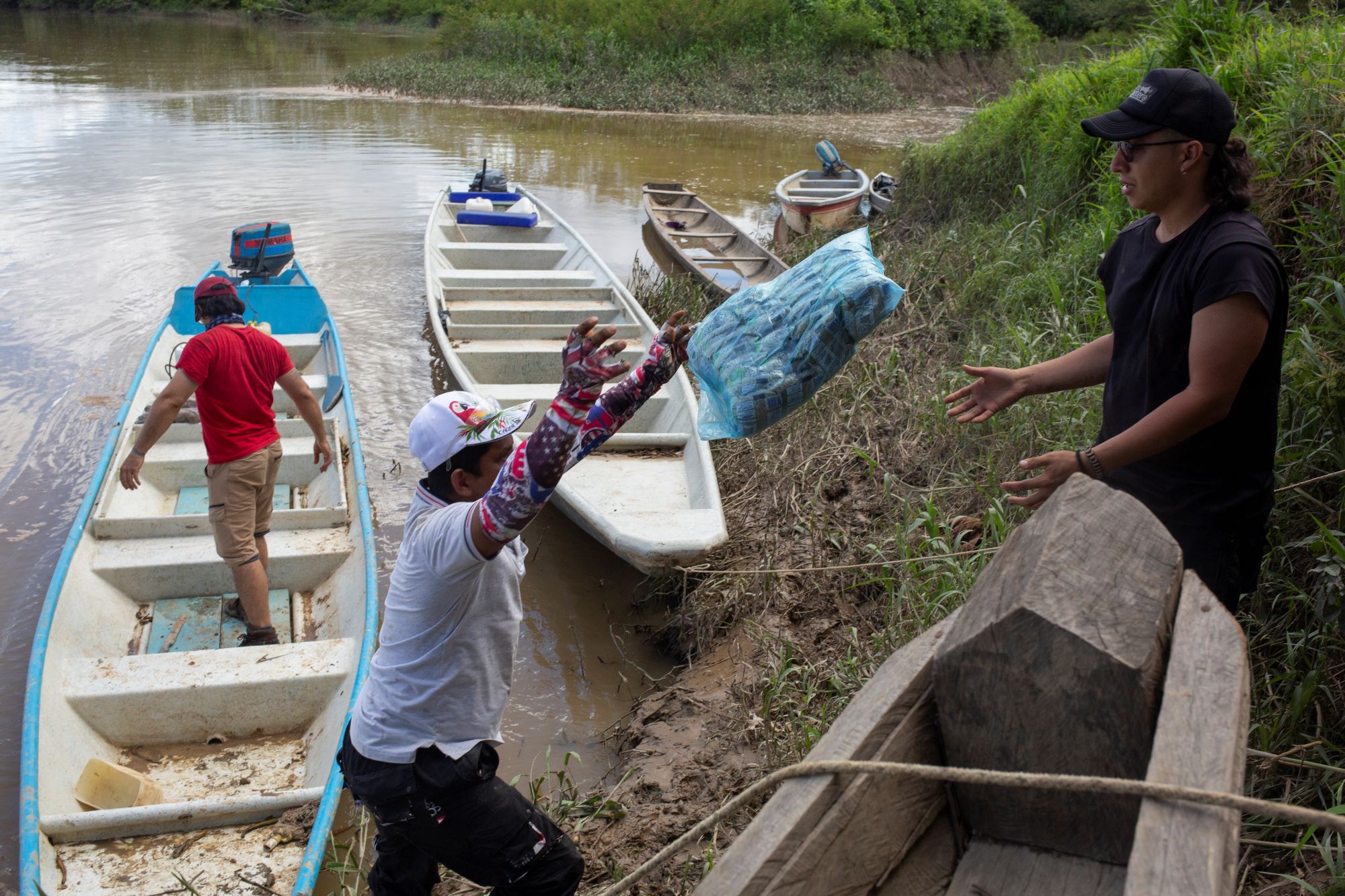
As soon as she set foot in the village during a reporting trip this March, Álvarez knew that something was wrong. Nuevo Colombia looked like a ghost town. It had been six months since anyone had been able to sell the coca paste they produce, and the community was running short on staples like food, gas and the first aid supplies so vital for the village, which is four hours by boat from reliable medical attention.
Jeferson Parrado, Nuevo Colombia’s designated leader, explained that the region’s lack of roads and other infrastructure has made it impossible for his community to bring products to market, leaving them no alternative but to produce coca paste to sell it to the armed groups that control the area. It's a precarious living at best, and one that further entrenches them in a conflict with the government that occasionally boils over into violence.
Voces del Guayabero
Voces was originally formed to document human rights violations in the Guayabero, a region of about 90 isolated villages, including Nuevo Colombia, scattered along its namesake river. In 2017, a handful of farmers from the region organized fundraisers to buy a shared camera and hire a journalist from outside to train them on the fundamentals of reporting.
In 2020, a series of particularly brutal military raids of coca farms – in which soldiers often wiped out food crops in addition to the coca plants, growers’ sole source of income – led to confrontations with the local community and put the fledgling reporters to the test.
On June 4 of that year, Voces was the only media organization present when the army responded to protests with tear gas and live ammunition. Voces reporter Fernando Montes Osorio, identified by a “press” vest, was running from soldiers with a hand on his camera bag when he was shot. The bullet passed through his right hand and his camera, maiming both. Pablo Parrado, a community leader of no relation to Jeferson, described the event as “a clear attempt at homicide.”
Upon learning about the incident, Álvarez made her first visit to the territory, beginning a relationship with Voces and the communities of the Guayabero that has deepened and evolved over the years.
“Without the help of El Cuarto Mosquetero, the work of Voces del Guayabero would be more difficult,” said Jeferson Parrado. “But thanks to the support of El Cuarto Mosquetero, our journalists are able to keep up the fight.”
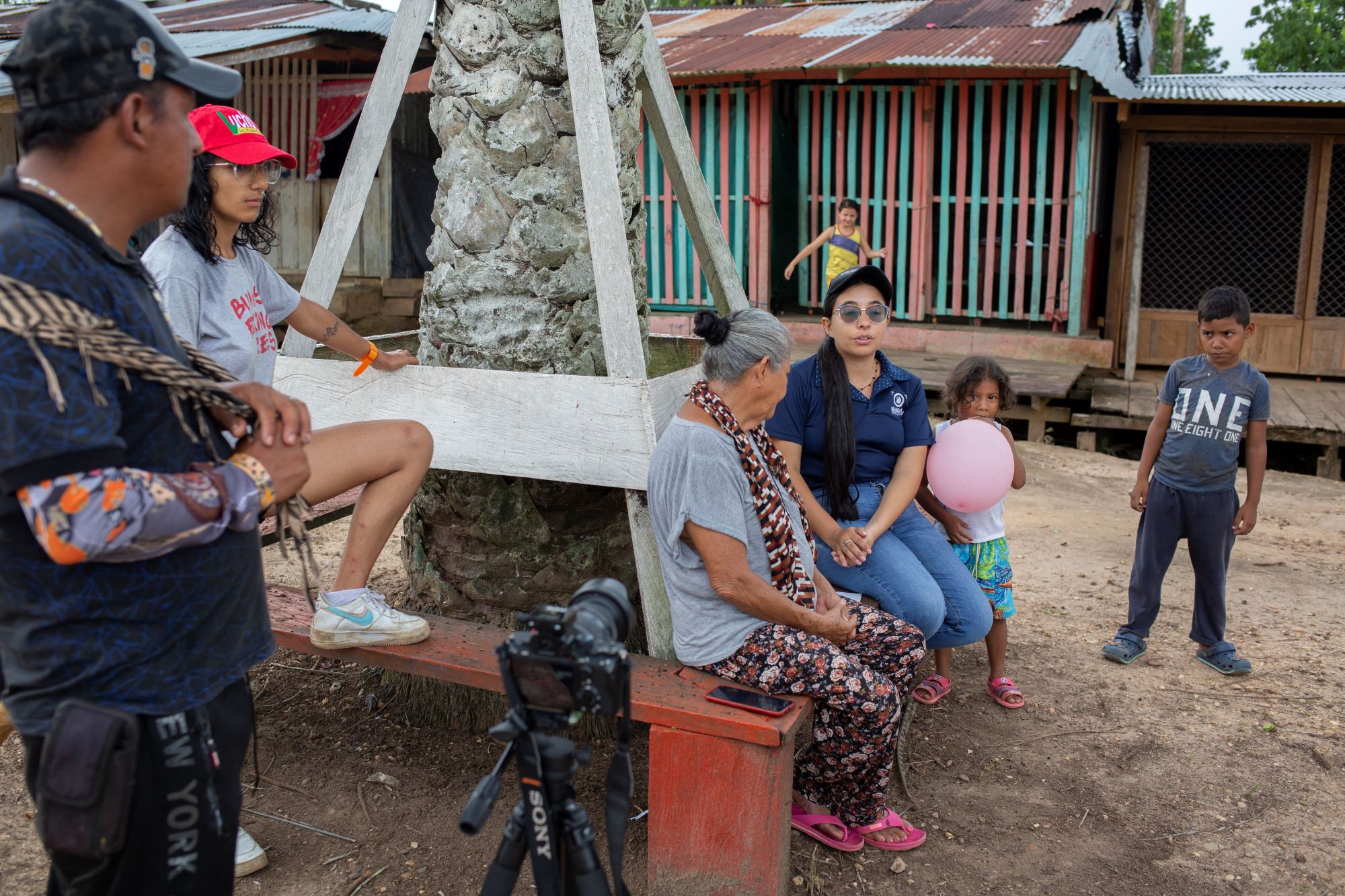
El Cuarto Mosquetero
In 2015, as the Colombian government negotiated with the Revolutionary Armed Forces of Colombia (FARC) to end more than 50 years of war, university students founded El Cuarto Mosquetero to amplify the voices of Colombians from regions hardest hit by the conflict, and highlight the deep inequalities that fuel it.
While many of the promises of the peace accords signed in 2016, such as the full benefits of citizenship and freedom from armed groups, have yet to materialize for these Colombians, ECM wades into that gap with a broad interpretation of journalism’s mandate that can even include material support for the vulnerable communities they cover. ECM also leads workshops in journalism and communication aimed at giving them the tools to tell their own stories.
This is important, said Álvarez, because traditional media in Colombia – where, as of 2016, the country’s three richest men owned 57% of all media – doesn’t do a great job of covering the nation’s poor, and often promotes narratives that further stigmatize them.
As Parrado puts it, “They only show the side of how bad we supposedly are.”
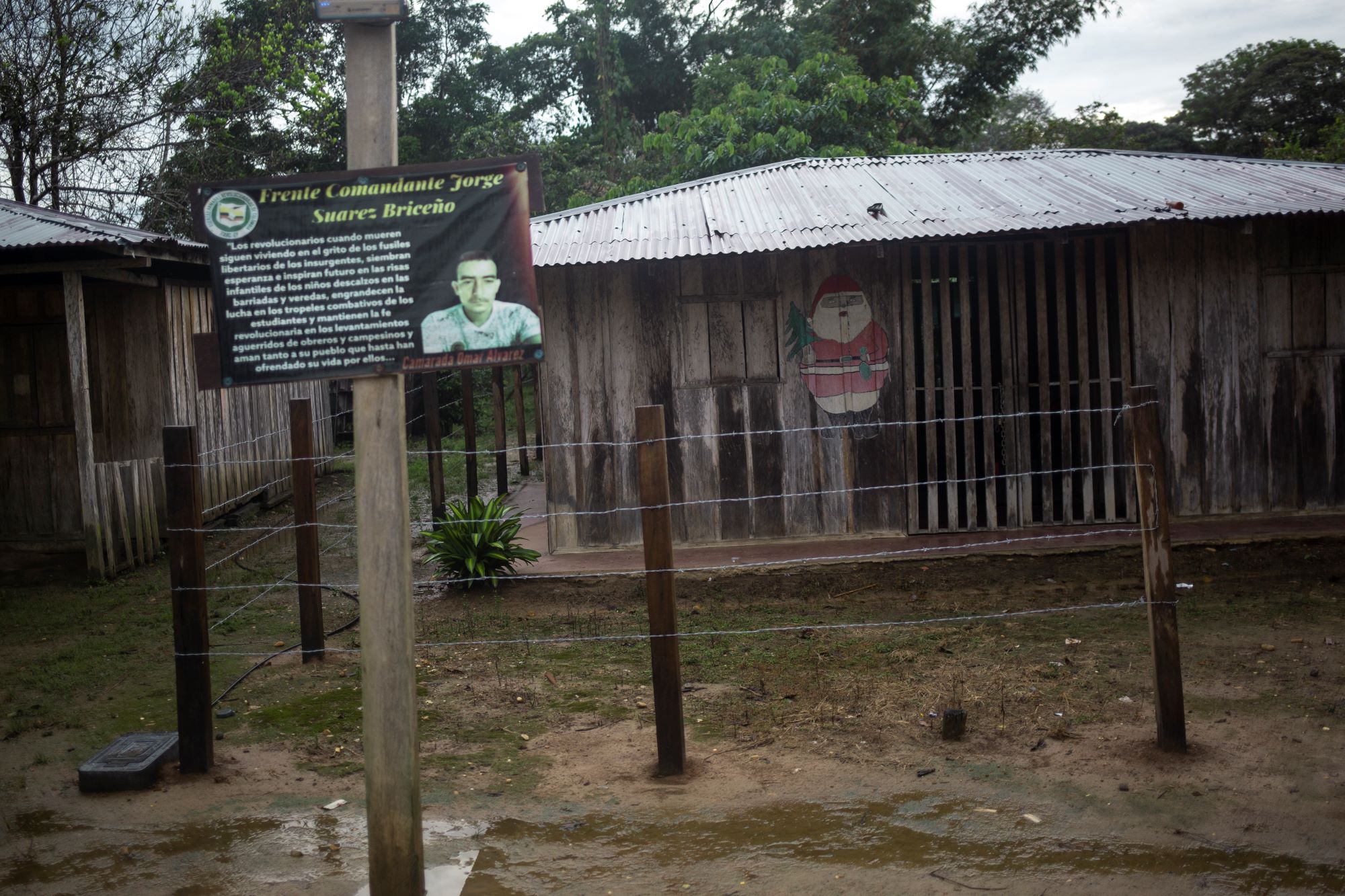
The narrative that everyone who lives in regions like the Guayabero is a criminal, Álvarez believes, makes it even harder for them to reach out to the government for help. Despite the acute crisis that residents of Nuevo Colombia were facing, ECM’s reporting found that the public agencies tasked with safeguarding their human rights had no knowledge of the local recession.
To get a better picture of the neglect Nuevo Colombia’s residents report, ECM filed public records requests with the responsible governments for a complete list of programs or projects that benefit the community. The local municipal government responded that, due to the remote location of the village and the state of public order there, it had been impossible to make any investments whatsoever. Similarly, the regional government said that since Nuevo Colombia lies within the boundaries of a national park, the state couldn’t implement public works or any other programs to benefit the village.
Given the lack of institutional response, ECM circulated a letter to NGOs and public agencies working in the area soliciting humanitarian relief for the citizens of Nuevo Colombia.
In the philosophy of ECM, communication can and should be used to effect change directly. After only one of the offices they contacted responded with a small donation, ECM decided to launch a public campaign, collecting food, clothing and toys from individuals who were looking for a way to help after reading about the village’s situation.
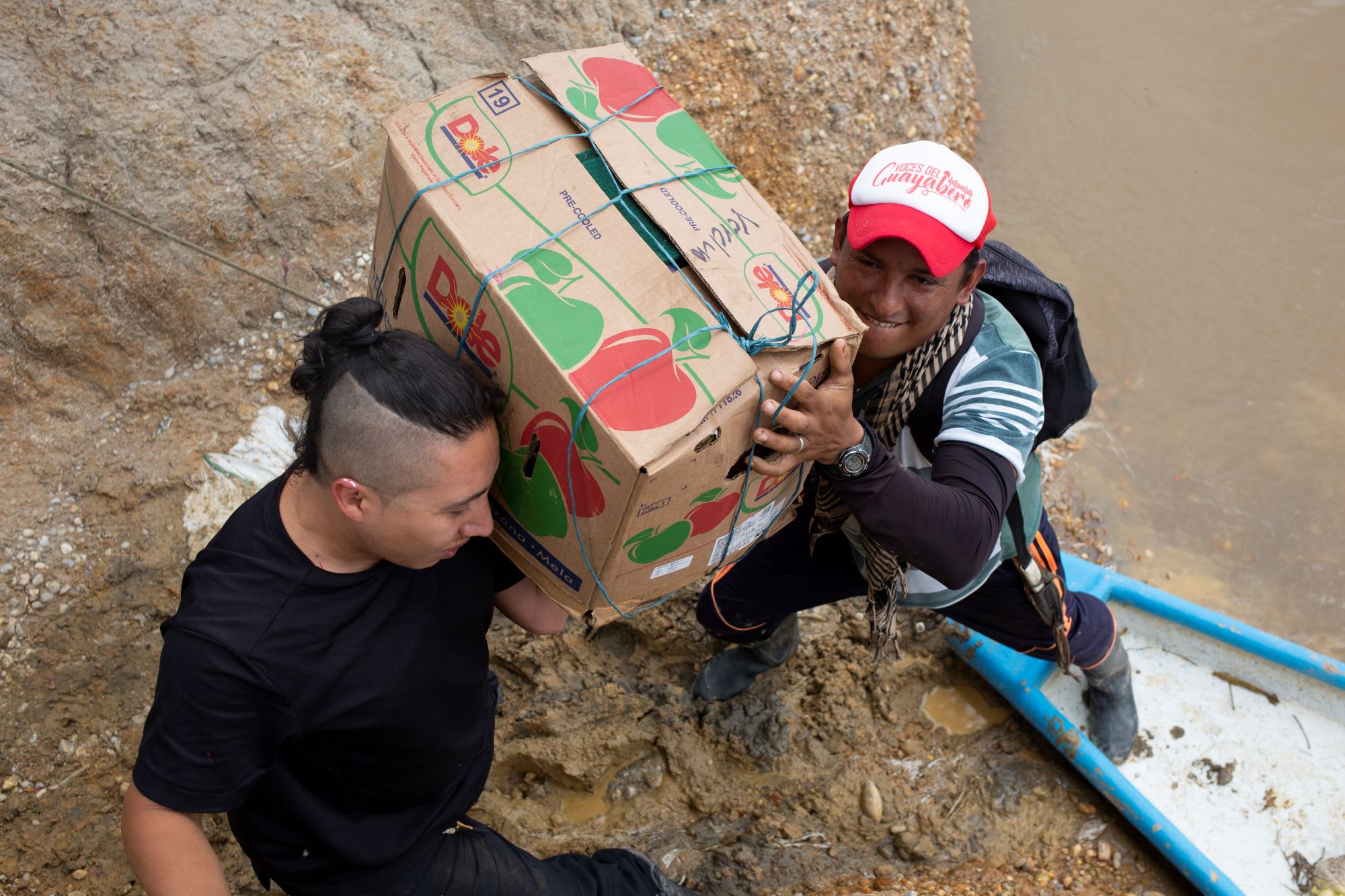
After hauling the donations on an overnight bus ride, in the back of a pickup truck over rough dirt roads and handmade bridges, and upriver to Nuevo Colombia, ECM reporters were able to deliver a package of groceries to, among others, Maria Eduvina Jiménez, who explained that since the recession set in, she’d been having trouble coming up with even two meals a day for herself and her daughters.
“The support of El Cuarto Mosquetero has been fundamental,” said Jeferson Parrado, referring not only to the material aid. “It’s the only media outlet that’s tried to show – no, not tried, has shown – the reality of what we live in this region.”
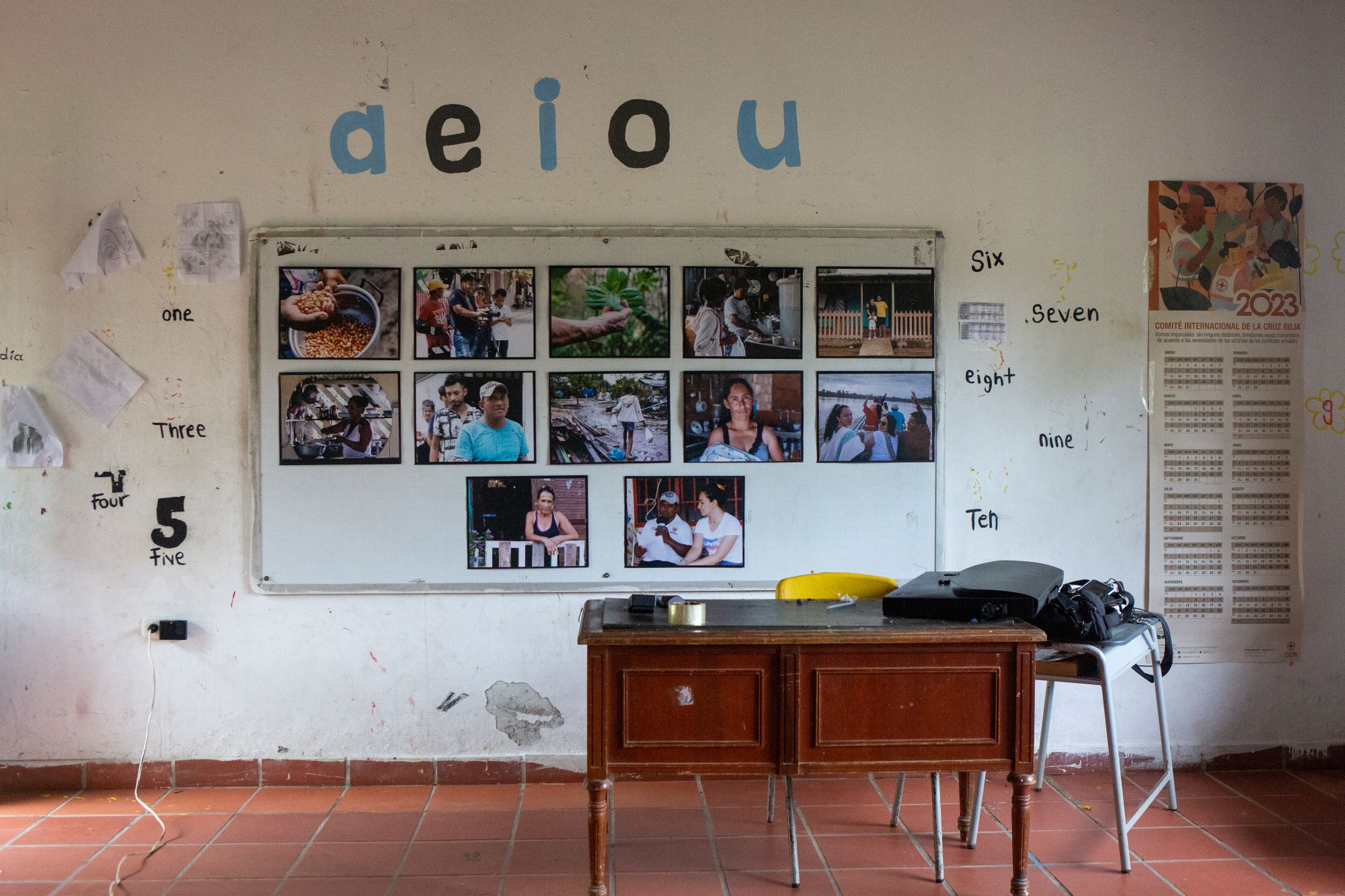
Author’s note: I reported this story while collaborating with El Cuarto Mosquetero as an unpaid contributor, thanks to the Hazeltine Travel Scholarship from Indiana University. I participated in both the March reporting trip to Nuevo Colombia, and the training sessions in May.
All photos courtesy of Hali Tauxe.

